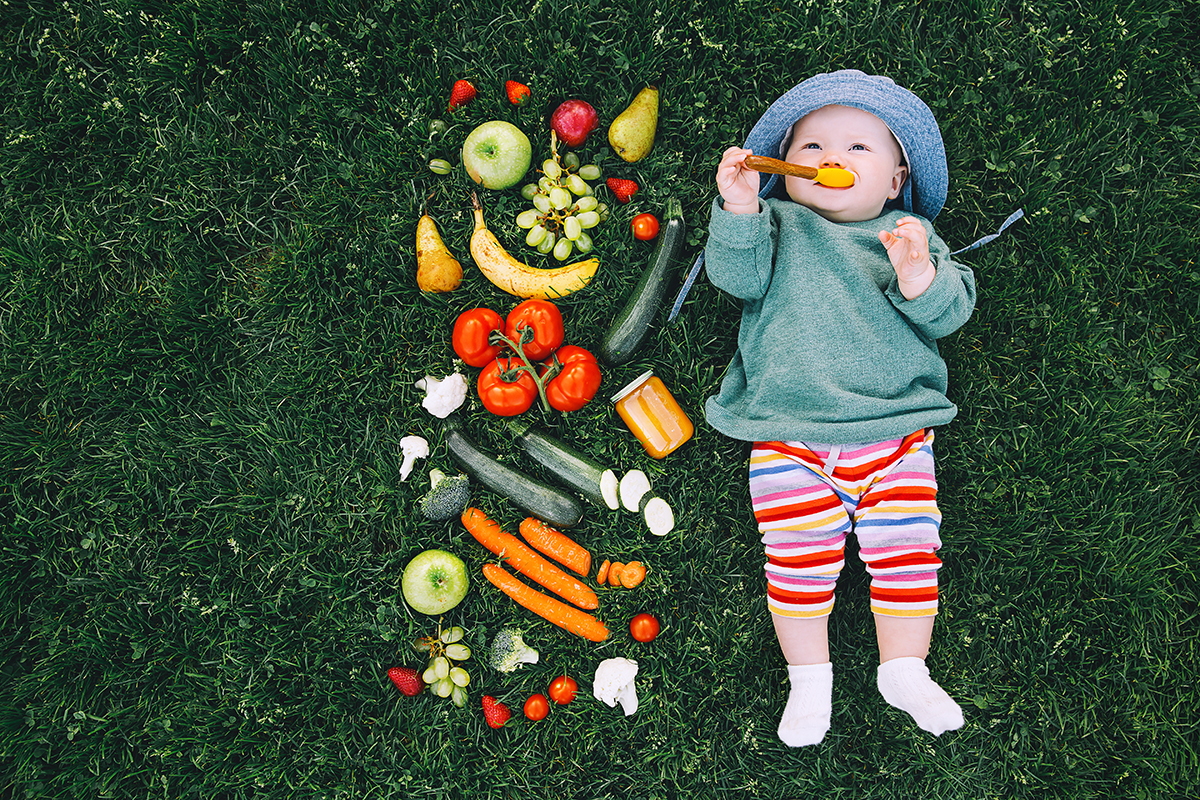How to Correctly Store Baby Food
Storing your baby’s food correctly is important to ensure that it is safe for them to eat. If it is ...
Read MoreImportant notice to customers — product packaging changesLearn More
NEW FOOD PACKAGING IN STORE NOW
From August 2018, customers will notice our rebranded food packaging start to appear on shelf in all major stockists.
 CURRENT Packaging
CURRENT Packaging

 new Packaging
new Packaging
We are excited to announce our new packaging will start to appear on shelf from August 2018. This transition to new packaging will occur over a number of months. During this time there will be a mix of current and new packaging on shelf.
There are no major changes to these products, in some instances there is a small name change or slight recipe improvement, see below for the full details.
Products purchased via the website will be delivered to customers in our old packaging until the end of October. From November, products ordered from the website will be delivered in the new packaging.
Please note, our Infant Formula packaging will not be rebranded until later in 2019.
For any questions, connect with our team of accredited practising Dietitians on +61 3 6332 9200
Product name changes
 CURRENT Packaging
Organic Baby Rice
CURRENT Packaging
Organic Baby Rice

 NEW Packaging
Organic Rice with Prebiotic (GOS)
Note: Our Baby Rice recipe has been upgraded to now include GOS Prebiotic
NEW Packaging
Organic Rice with Prebiotic (GOS)
Note: Our Baby Rice recipe has been upgraded to now include GOS Prebiotic
 CURRENT Packaging
Organic Vanilla Rice Custard
CURRENT Packaging
Organic Vanilla Rice Custard

 NEW Packaging
Organic Milk & Vanilla Baby Rice
NEW Packaging
Organic Milk & Vanilla Baby Rice
 CURRENT Packaging
Organic Apple & Cinnamon Porridge
CURRENT Packaging
Organic Apple & Cinnamon Porridge

 NEW Packaging
Organic Apple & Cinnamon Baby Porridge
NEW Packaging
Organic Apple & Cinnamon Baby Porridge
 CURRENT Packaging
Organic Banana, Pear & Mango
CURRENT Packaging
Organic Banana, Pear & Mango

 New Packaging
Organic Banana, Pear, Apple & Mango
New Packaging
Organic Banana, Pear, Apple & Mango
 CURRENT Packaging
Organic Mango, Blueberry & Apple
CURRENT Packaging
Organic Mango, Blueberry & Apple

 New Packaging
Organic Blueberry, Mango & Apple
New Packaging
Organic Blueberry, Mango & Apple
 CURRENT Packaging
Organic Peach & Apple
CURRENT Packaging
Organic Peach & Apple

 New Packaging
Organic Grape, Apple & Peach
New Packaging
Organic Grape, Apple & Peach
 CURRENT Packaging
Organic Pumpkin & Tomato Risotto
CURRENT Packaging
Organic Pumpkin & Tomato Risotto

 New Packaging
Organic Pumpkin, Sweet Potato & Tomato
New Packaging
Organic Pumpkin, Sweet Potato & Tomato
 CURRENT Packaging
Organic Broccoli, Beef & Brown Rice
CURRENT Packaging
Organic Broccoli, Beef & Brown Rice

 New Packaging
Organic Beef & Vegetables
New Packaging
Organic Beef & Vegetables
 CURRENT Packaging
Organic Milk Rusks Toothiepegs
CURRENT Packaging
Organic Milk Rusks Toothiepegs

 New Packaging
Organic Milk Rusks
New Packaging
Organic Milk Rusks

Introducing healthy and nutritious foods into your baby’s diet is essential for their growth and development. Fruits and vegetables are a great source of the key vitamins and minerals your baby needs, and should be among some of the first foods you introduce to your baby. With that in mind, here’s a guide to what we consider to be the best fruits and vegetables for your baby.
Introducing your baby to vegetables is an exciting time. You can discover if there are any vegetables your baby doesn’t particularly enjoy, and which vegetables pique their interest. It’s also the time for you to introduce your baby to healthy eating and nutrition, which will serve as the building blocks for their growth and development.
The greater the variety of vegetables your baby eats, the more likely they’ll make healthier choices as they develop into childhood and through to adulthood. This is because when children become familiar with vegetables at an early age, they’re more likely to eat them long-term.
From the age of six months, it’s time to begin introducing vegetables into your baby’s diet. The following vegetables are great options for your baby:
It’s important to introduce your baby to these vegetables one at a time. If you wait a few days between trying new vegetables, you have time to see if your baby has any sort of allergic reaction to them. If your baby is just starting out on solids, it’s also a good idea to puree the vegetables.
Fruits are important for your baby’s energy, growth and development. They contain vitamins, antioxidants, fibre and water, and help to protect your baby against diseases later in life. They’re also very versatile, giving you the flexibility to feed them to your baby fresh, pureed, sliced, mashed, or mixed in with porridge for a nutrition-packed snack.
Feeding your baby fruits is a great way to introduce them to solids since they’re sweeter than vegetables. Try to choose fruits of all textures, colours and flavours to help your baby become used to different tastes and textures, including the following:
Beginning your baby’s transition into solids with fruits gives them a healthy kick-start to their growth and development. Just as with vegetables, start with one new fruit at a time, waiting a couple of days before you add another fruit into your baby’s diet to monitor any allergies or intolerances.
To help make introducing fruits and vegetables to your baby easier, Bellamy’s Organic offers a range of organic baby food fruit and vegetable products. These nutritious, tasty and convenient fruit and vegetable purees are made with you and your child’s best interest in mind, providing easy to use squeezable pouches packed with organic goodness.